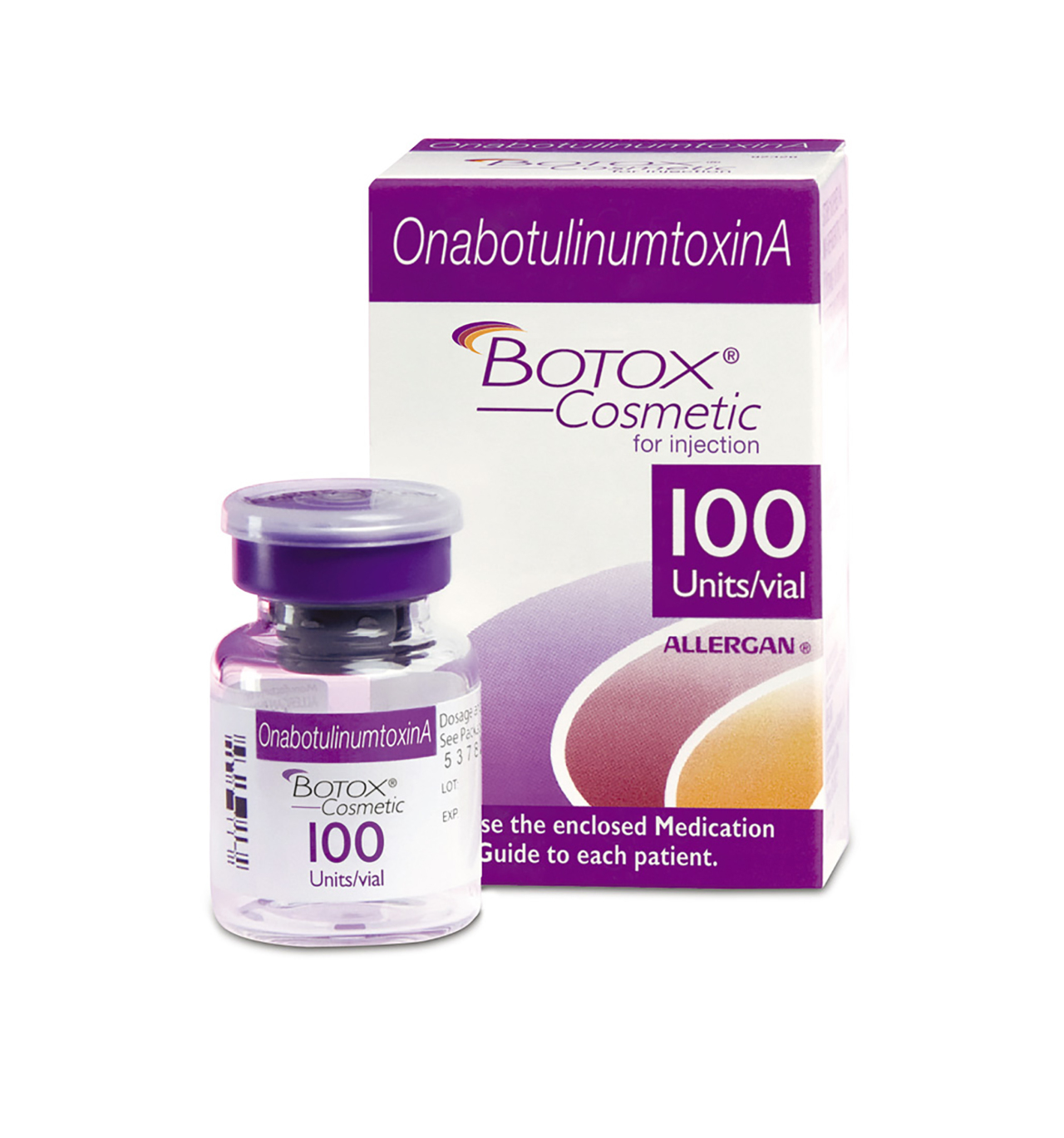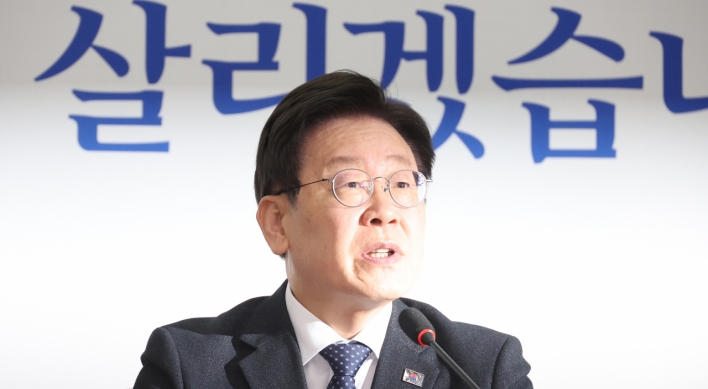[News Focus] What does Allergan gain from suit against Daewoong?
By Lim Jeong-yeoPublished : May 22, 2019 - 19:05
Botox-maker Allergan has teamed up with South Korea’s Medytox in suing Daewoong Pharmaceutical and its US partner Evolus, challenging the latter’s legitimacy in sourcing botulinum toxin.
Allergan accuses Daewoong of misappropriating trade secrets through a former Medytox researcher who allegedly stole BTX samples and transferred them to Daewoong.
This brawl that has been building up since 2016 reached its climax this month, when the United States International Trade Commission ordered Daewoong to submit samples of Nabota, or Jeuveau, to experts outlined by Medytox.
Both Daewoong and Medytox have said they anticipate to clear the case in the USITC’s investigation.
Allergan accuses Daewoong of misappropriating trade secrets through a former Medytox researcher who allegedly stole BTX samples and transferred them to Daewoong.
This brawl that has been building up since 2016 reached its climax this month, when the United States International Trade Commission ordered Daewoong to submit samples of Nabota, or Jeuveau, to experts outlined by Medytox.
Both Daewoong and Medytox have said they anticipate to clear the case in the USITC’s investigation.

Medytox said it has no matching obligation to supply a sample for review at the USITC. The USITC has not commented.
Then, what does an industry behemoth such as Allergan have to gain from a suit against an underdog contender Daewoong?
The four-year brawl has led to many suspicions, allegations and sidings, including the opposing interpretations of the nature of BTX strain as well as claims of antitrust regulations breach, and market monopoly.
Irish-US pharma firm Allergan is the indisputable leader in the wrinkle-erasing BTX market. In 2017, Botox generated nearly $3.2 billion revenue worldwide. Such is the popularity of its mainstay product that the drug name is synonymous with the long list of other BTX products available.
However, Botox isn’t cheap. The average cost for shots to the forehead could cost anywhere between $200 to $600. It has been cited as a burden not only for patients but also for doctors.
For instance, some doctors in the US filed complaint in 2013 at the Central District of California for Allergan’s alleged artificial maintenance of its high-priced BTX. Allergan settled the class-action suit in 2018 for $13.45 million.
What triggered the suit was Allergan’s license-in of Korean competitor firm Medytox’s first-in-the-world liquid type BTX MT10109L in 2013 for more than $300 million. This gave it worldwide exclusive rights to commercialize the drug, excluding Korea, where Medytox had already begun commercialization.
MT10109L, known as Innotox, is the world’s first liquid-type injectable BTX. Typically, BTX is created as a powder, a small amount of which is mixed with a saline solution for clinical injections.
Botulinum toxin is a deadly poison that is more lethal than anthrax. It is also called a “miracle poison,” because when properly separated and purified, it has medicinal effects that can be applied beyond the realms of cosmetics that treat cerebral palsy, migraines and other symptoms.
BTX can be found in plants, soil, water, intestinal tracts of animals, and even in rusty cans. Those identified by Dr. Ivan Hall between 1920 and 1942 are called “Hall A strain,” which is what Medytox’s strain is. The firm argues that Daewoong also uses “Hall A strain” BTX and that claims that such strains are found in the Korean soil is self-contradictory.
While Daewoong proceeded to complete clinical trials in the US and gain US Food and Drug Administration’s commercialization approval at the beginning of this year, Medytox’s Innotox expansion was put on hold for a full five years as Allergan remained status-quo with the drug.
Allergan then announced it will begin phase 3 clinical trials of MT10109L in October 2018, together with a plan to independently develop its own prefilled syringe liquid type BTX. It also said it is developing a liquid formulation of a novel neurotoxin, nivobotulinumtoxinA, and plans to initiate development for glabellar lines and crow’s feet lines.
Meanwhile, around the same time, the US local media started to report that Daewoong’s Nabota, sold in the US by Evolus under the name Jeuveau since mid-May will be a “Botox-killer.”
Jeuveau can be applied using the same method and amount as Botox at a 20 percent to 30 percent cheaper rate.
While many other cheaper BTX products have proven their efficacy, Jeuveau’s similarity to Botox makes it its biggest competitor, for doctors accustomed to Botox are expected to feel more at ease switching to Jeuveau.
The USITC began its investigation in March, and in early May it received a tentative list of witnesses from both Evolus and Allergan for the imminent hearings. The investigation can take as short as around nine months to as long as around 20 months.
With its own set of developments for safer-to-inject BTX such as the prefilled syringe liquid, and the ongoing suit against Daewoong, it appears Allergan will maintain its market dominance for the time being.
Allergan first won approval for Botox in 1989 and has held a dominant position since. Experts estimate some 30 percent of its revenue is attributable to Botox. In the first quarter of this year, it posted a net revenue of $3.60 billion.
Reuters estimated in March that the global BTX market will reach $9.84 billion by 2025. The market valued approximately $3.84 billion in 2017, and is anticipated to grow at a rate of more than 12.5 percent over the forecast period 2018-2025.
By Lim Jeong-yeo (kaylalim@heraldcorp.com)



![[Herald Interview] 'Amid aging population, Korea to invite more young professionals from overseas'](http://res.heraldm.com/phpwas/restmb_idxmake.php?idx=644&simg=/content/image/2024/04/24/20240424050844_0.jpg&u=20240424200058)






![[Hello India] Hyundai Motor vows to boost 'clean mobility' in India](http://res.heraldm.com/phpwas/restmb_idxmake.php?idx=644&simg=/content/image/2024/04/25/20240425050672_0.jpg&u=)






